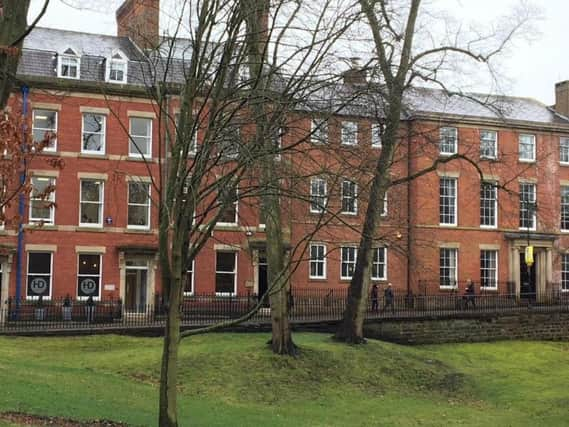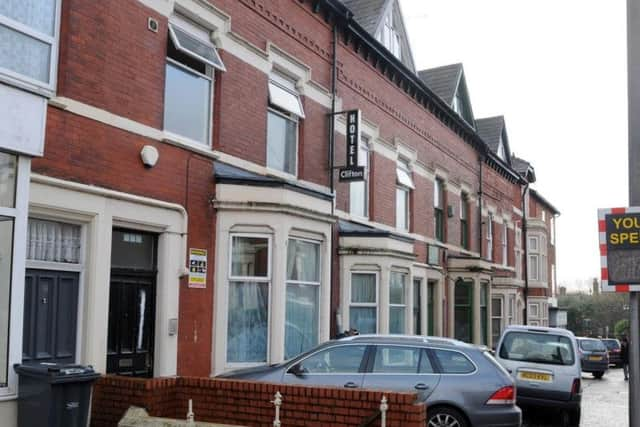Preston landlords could face unlimited fines over new multiple occupancy law


Between 2,000 and 4,000 properties in the city automatically became subject to new HMO housing rules that came into force in October, and their landlords could face unlimited fines - or a £30,000 civil penalty notice - unless they obtain the new licence that is required to operate them.
Housing chiefs warned irresponsible property owners who fail to get the correct permission from Preston City Council could be prosecuted, and could even be banned from renting out properties if they repeatedly offend.
Advertisement
Hide AdAdvertisement
Hide AdThe authority has revealed so far just 150 homes have obtained the licences they need, but staff believe there are up to 4,000.


As housing costs have soared, people often have no choice but to seek accommodation in HMOs, which along with Preston’s other rented properties, form more than a quarter of the city’s housing sector.
In 2010, due to a law change, many homeowners were able to change their three bedroomed homes into homes of multiple occupancy without requiring permission - only larger properties over three storeys high with five or more unrelated tenants and shared facilities needed a licence.
By last year there were 114 licensed HMOs in Preston, but thousands of others that did not require a licence under old rules.
Advertisement
Hide AdAdvertisement
Hide AdHowever, since October this year, a licence must be obtained for an entire house, bungalow, flat or any kind of accommodation which is let to more than four unrelated occupiers, who form two or more households and who share a basic amenity.
In the weeks since the law came in, only 40 more completed applications have been received, prompting concerns from housing bosses.
Eirian Molloy, of Preston’s environmental health team, said: “This doesn’t mean Preston suddenly has 4,000 extra HMOs - these properties were still there before - it just means those that didn’t meet licencing requirements before now do.
“Between 2010 the housing market has changed out of all proportion. The proportion of HMOs has grown massively in the last few years for a number of reasons.
Advertisement
Hide AdAdvertisement
Hide Ad“The University has grown exponentially to accommodate growing numbers of students.
“Traditional students home had four to six students, and lots of properties in Preston lent themselves to that kind of set up.
“The market for students now is not about sharing a house, they are very much moving towards purpose built accommodation, and the expectation is self contained en suite properties.
“The HMO sector itself has changed in terms of who lives in them. We have young professionals looking for accommodation in bigger, historic properties off Winckley Square and in Avenham that are very desirable and upmarket for HMOs.
Advertisement
Hide AdAdvertisement
Hide Ad“Then at the other end of the spectrum are the most vulnerable people for whom HMO accommodation is a last resort, a room in a HMO is all they can get.
“Increasingly these sorts of properties are becoming properties of people who are extremely vulnerable, have got very chaotic lifestyles and multiple needs which could be around drugs alcohol and mental health issues.
“As a result of the changes to the NHS and social care system they are individuals who have really, really challenging lifestyles - if they don’t live in HMOs they are in a doorway, they are sleeping in a skip. These individuals have to live somewhere.”
The new laws don’t require the council to tackle crime at HMOs - it is strictly to do with the quality of the accommodation.
Advertisement
Hide AdAdvertisement
Hide AdHowever it introduces an onus on landlords to take “reasonable and practicable steps” to prevent or reduce anti social behaviour by tenants or visitors to ensure communities are safe and areas do not decline because of a failure to act.
Such issues have been well documented in recent years, with some of Preston’s HMOs having a chequered history.
Previously, murders, rapes and sexual assaults were among a string of crimes reported at two of them in a two year period.
Between August 2016 and 2018, 41 crimes were reported across the former Clifton and Essex hotels in Preston.
Advertisement
Hide AdAdvertisement
Hide AdThere were 25 incidents at the former Clifton Hotel, which has reopened under new management as Responsible House.
They include the murder of tenant Jonathan Palgrave, as well as a wounding, 13 assaults, a burglary, criminal damage, two drug offences, a robbery, three thefts, a rape, and a public order offence.
The neighbouring Essex Hotel had 16 crimes including six forms of theft, two criminal damage, seven assaults, and a burglary.
The new rules explained
An HMO is now classed as any property occupied by five or more people, forming two or more separate households.
Advertisement
Hide AdAdvertisement
Hide AdThis contrasts with the previous HMO definition which is a property occupied by five or more people, forming two or more separate households and comprising of three or more storeys.
Landlords who currently let an HMO which didn’t previously require licensing, but will under these rules, must apply for a license through the local council.
There is an important exception: if the property is in a purpose-built block of flats comprising 3 or more units
Another regulation introduces minimum room standards for properties falling within the scope of licensing, which will prohibit landlords from letting rooms to a single adult where the usable floor space is less than 6.51sqm and 10.22sqm for a room occupied by two adults.
Advertisement
Hide AdAdvertisement
Hide AdThe licence will cost around £500 - a £150 fee and £350 towards ongoing monitoring and enforcement.
But the council says this would be made back by rent from the extra number of people able to be housed in the property when the landlord obtains a proper licence.